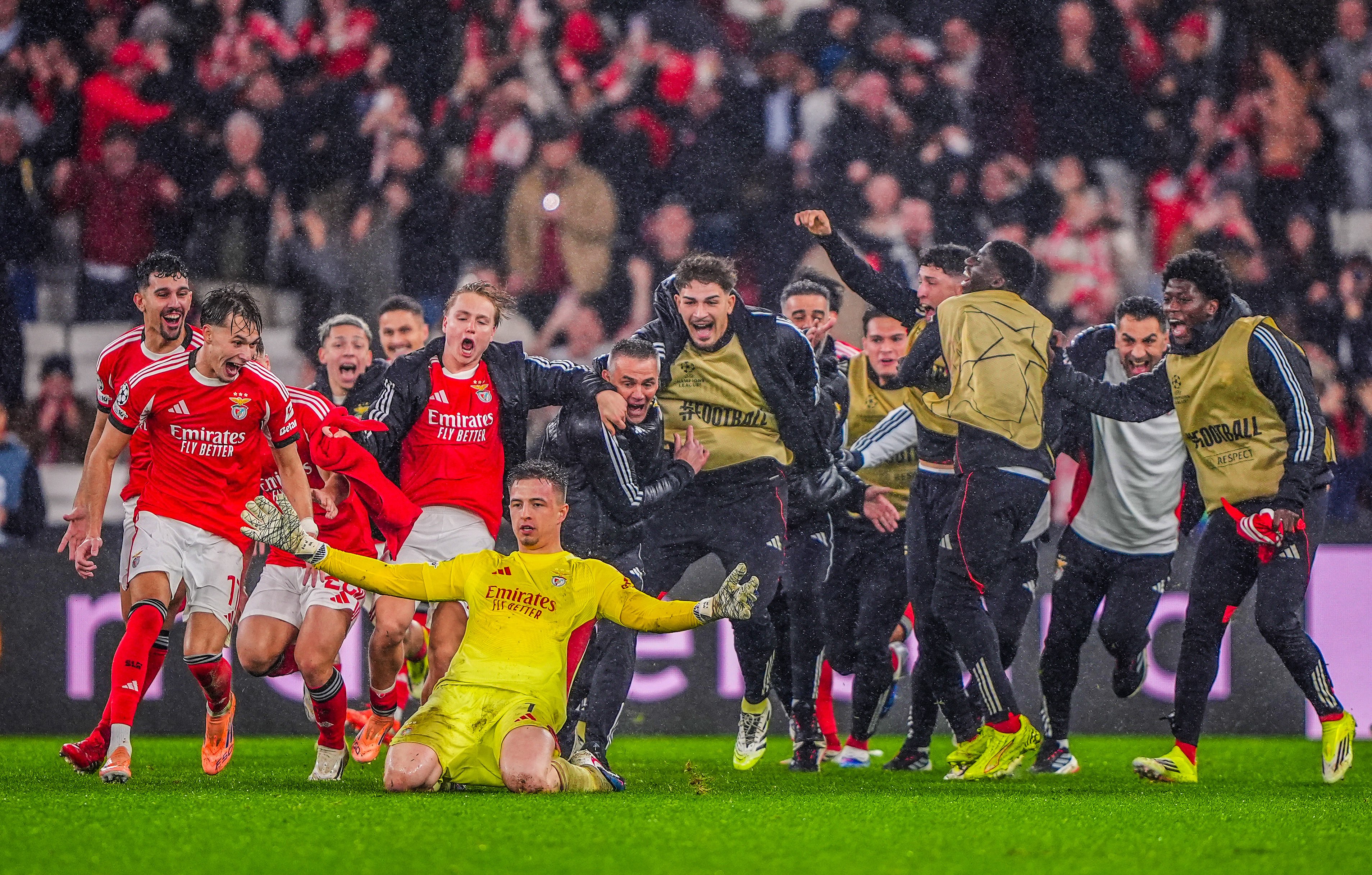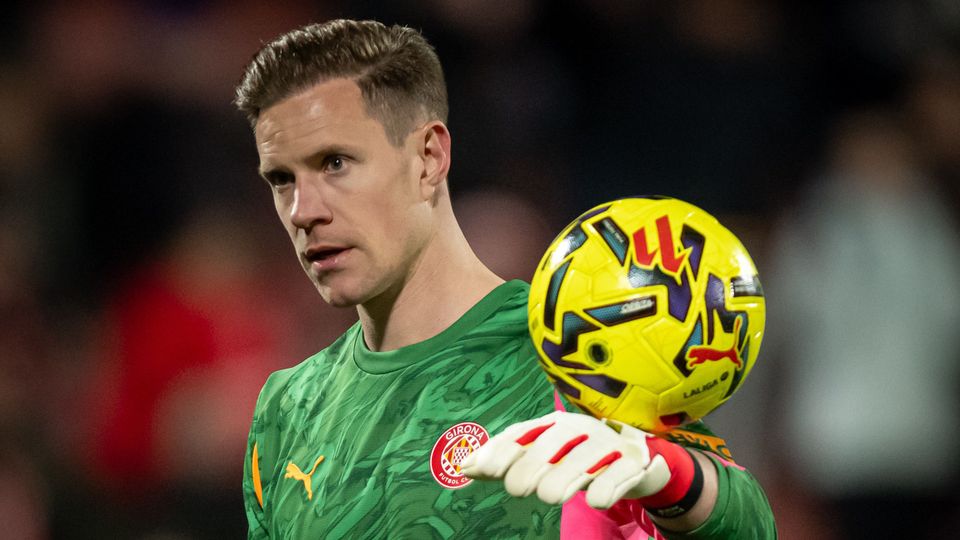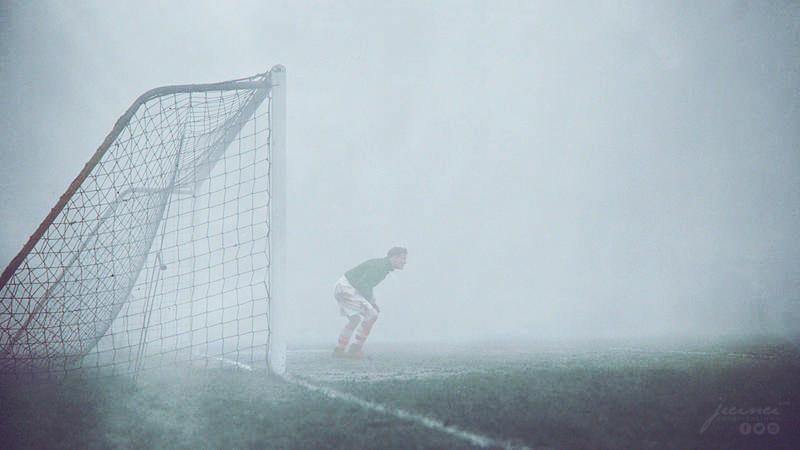Kandolin discusses the ingredients that took him through the Swedish game and into the Premier League.
Adaptability, selflessness, and the hunger to learn are the formula for Linus Kandolin’s rise to a Premier League coaching job. The 34-year-old has been a goalkeeper coach for the last decade at Ostersunds FK, IF Elfsborg, and West Ham United.
Speaking exclusively to Goalkeeper.com, the Swede’s “biggest advice” to youngsters sums up the mindset that has underpinned his success so far: “be humble and curious about finding new ways of helping goalkeepers improve. Work hard, because you can always learn. You should always think about the best approach to facilitate goalkeepers. They’re the ones who are going to be on the pitch, and you need to help them perform. I don’t try to have a big ego.”
Before his departure from West Ham (a consequence of the end of Graham Potter’s tenure in East London), Kandolin worked with Alphonse Areola, Lukasz Fabianski, and Mads Hermansen. The former pair are 32 and 40 respectively - Kandolin himself is only 34. One of the youngest goalkeeper coaches in the top flight during his tenure, learning and adaptability were central to his own development.
“With a new goalkeeper, you can’t have the same blueprint,” he explained. “I can still keep my principles, but they need to learn. I try to be open. How can I use my knowledge, but also adapt and change it?”
The “clear picture of how I want to train and the way my goalkeepers act in a game, which I’ve developed over the years” is a byproduct of this openness and the sum of the parts of adapting to different goalkeepers.
“I educate with a methodology that looks at the preparation before every action, and then how it is executed. You adapt this to the goalkeepers’ preferences to respect what they’ve previously learnt. You can't say ‘this is the only way.’ Instead, you say ‘this is my way and I believe in it,’ and that’s the foundation of your methodology.”

Part of this adaptability influences how Kandolin deals with goalkeepers, depending on their age. “When I work with an older, more experienced goalkeeper, I never throw all my thoughts or methodologies at him,” he shared. “I discuss and give him some parts, which he can put into his way of working. With a younger goalkeeper, I give them more tools.”
Kandolin references Fin Herrick, the 2006-born goalkeeper, who he previously coached at West Ham, as an example: “I wouldn’t necessarily tell Fin how to act in the build-up, because he’s so good at it and his way works for him. I would rather take stuff from him and put it into my methodology.”
Kandolin admits that he doesn’t come from a football family, and he was the first one to start playing at the age of six as a goalkeeper. In three years at the senior level in Sweden, he suffered relegations and quit playing in his early twenties. Growing up, Kandolin said he didn’t have many goalkeeper coaches and wanted to become one to “give players the opportunity and knowledge” that he never received, so they could reach a higher level. This decision kick-started his career.
“I moved to Östersund from southern Sweden to study sports science at university. I was doing a lot of theoretical work. I wanted more practical work, so I approached one of the clubs and asked to help because I wanted to start my coaching journey. It took me three weeks, after which I began coaching the U19s, U17s, and U15s in Östersund, as well as a senior men's and women's team. It happened quite quickly because there weren’t many goalkeeper coaches in the area, and the need for them was big.”
At the start of 2015, Kandolin joined the Ostersunds FK first team, partnering up with Graham Potter. “I’d been working with Graham for four years before I was invited to join the seniors. It was just about learning. I probably learnt as much as the players, such as understanding the game differently. Graham is really good at explaining the game.”
Kandolin left Ostersunds at the end of 2018, and between 2019 and 2025, he spent six years at fellow Swedish outfit IF Elfsborg as the goalkeeper coach, where he helped the club to two second-placed finishes in the Allsvenskan in 2020 and 2023. During this time, he was also on the coaching staff for the Sweden U21 national team. In July 2025, Kandolin reunited with Potter at West Ham.

A move to East London also meant he joined Casper Ankergen, who had just been appointed as Lead First Team Goalkeeper Coach, having previously spent time at Brighton & Hove Albion and Brondby IF. This restructuring also saw Danish shotstopper Mads Hermansen arrive at the Hammers from Leicester City.
“Casper and I wanted to build an elite environment where everyone trains properly and brings in the young prospects so they can develop,” he said. “We wanted to train hard and have fun, allowing everyone to perform at a high level. This was the main objective. We also wanted to change the playing style. But when the season started, we weren’t at our strongest. The Premier League is changing. Before, it was a lot of possession-based football, but now, many teams press high and go man-for-man, so the opportunities to play aren’t the same.”
Kandolin places huge emphasis on the development of young players and has always taken an interest in providing them with a pathway.
“Casper was ahead of me, he was the lead, but he was very open to having a level leadership. It really felt like we had a good connection. He did a bit more with the seniors, and I helped. Whereas I was more in charge of those going from the Under 21s and into the seniors out on loan.
“We also had big help from Billy Lepine, the goalkeeper coach in the 21s [now the Hammers’ new First Team Goalkeeping Coach]. We had weekly meetings to discuss the goalkeepers and what would be the best journey for them. We sent Fin on loan to Boreham Wood in non-league. He needed a new challenge and to play men’s football. He’s unbelievably good on the ball, but he needs to challenge himself by commanding his area and defending the box. We try to see what goalkeepers are good at and where they need to improve. Every goalkeeper will have a different pathway, but our main objective was to put that time into individual improvement.”
Kandolin believes that the success of a goalkeeper coach can be measured in two perspectives: “Measuring the trust and personal relationships, but also the thought process and methodology of actions. How is your relationship with the goalkeepers? It doesn’t matter the level, they’re still humans, and you need to build trust. I think about how they connect to me. If they trust you, they are more able to listen. Another way is asking how well they understand the main principles, and if they want to follow and use them.”
In September 2025, Potter was sacked as West Ham manager after eight months at the helm. Kandolin also left his role in the English capital. When asked about the ideal next step in his coaching career, Kandolin replied: “I would say the highest possible level, because I’m still on my way, but I want to challenge myself. I want to see how I can use my methodology of working after three months in the Premier League. I would say my main aim right now would be the Championship and to prove myself at an English level. I would never close any doors. I’m quite open-minded. I don’t need to lock myself into anything right now.”

The possibilities are limitless for Kandolin. With growing experience and knowledge, he doesn’t intend to just relax. Instead, he aims to network, expanding his horizons. “Being in London means you’re close to lots of people. Through my connections, I’ve got to try to make visits to clubs at different levels and learn from others. I have a big project of making a scouting base foundation to try and learn more about goalkeepers in England, Germany, Italy, and France.”
Kandolin’s journey still has serious momentum. It is surely only a matter of time before he returns to coaching.









